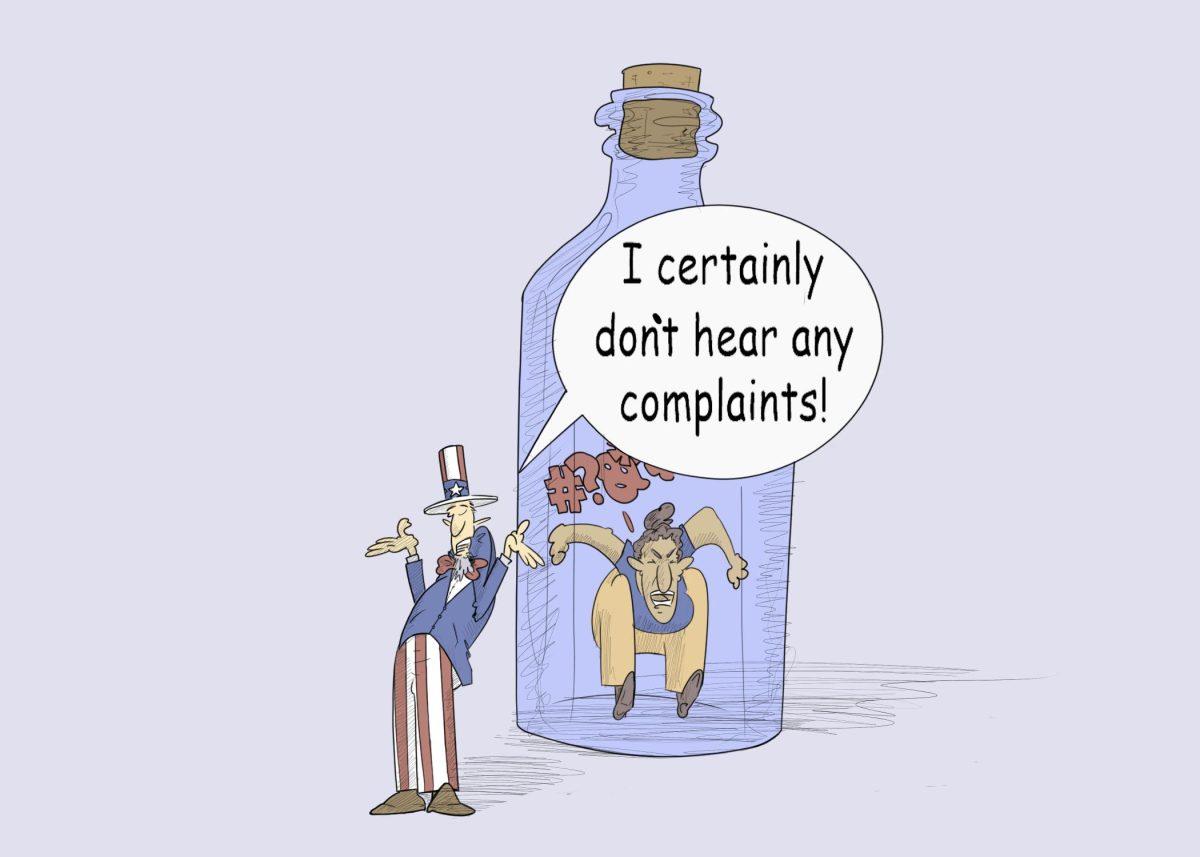Most students have probably faced at least a few setbacks in their lives, whether academic, social or personal. Of course, after such a setback it’s typical for a support group to materialize and say things like “don’t stress about it,” “shake it off” and “it could be worse!”
It’s usually true; things could be worse, but that doesn’t stop the sadness, guilt, grief or pain and it shouldn’t stop you from giving yourself time to feel your feelings. After all, we have emotions for a reason.
Students are under enough pressure to perform well in the classroom, cultivate high GPAs, pad their resumes with extracurriculars, maintain social lives and still somehow get a decent amount of sleep every night.
We don’t need the added stress and tension of bottling up our emotions and forcing a positive perspective for everyone around us. Just as it’s unrealistic to expect everyone you meet to be a constant ray of sunshine, it’s unrealistic to expect yourself to be. Sometimes it’s ok to not be ok.
We’ve fostered an atmosphere of jovial stress and nonchalant mental decay in our educational system without providing ourselves or each other with a contingency for escape. Laughing off sleep deprivation and waving aside serious problems just to conform to the idealistic “stay positive” lifestyle is unhealthy and unsustainable.
Expressing your feelings is healthy and natural, but the glorification of exhaustion and stress can be a dangerous aspect of college life. It’s ok to feel stressed, it’s ok to take time to decompress and process, but avoiding the root causes of negativity and stress in your life only perpetuates the cycle. Just joking around before class about your lack of sleep or insane stress levels isn’t enough.
Taking proactive steps to recover from negative life experiences not only improves your day-to-day well-being, but also prepares you to deal with them in the future. Not all negative emotions produce negative results. Anger and disappointment can inspire a stronger drive to do better and succeed. Sadness and grief can build compassion and empathy for others in difficult situations.
It’s important to process and grow from your experiences, both positive and negative, and use emotional responses as guides for action rather than stagnation.
There shouldn’t be a stigma attached to sadness, anger or any emotion typically labeled “negative.” When properly used, these feelings are the strongest instigators of change in our lives. They remind us to strive for happiness and work to better ourselves and the lives of people around us.
Feeling negative emotions is a routine part of life, but if you find yourself experiencing persistent sad, anxious or “empty” feelings, please seek professional assistance. If you are having suicidal thoughts, actions or are in crisis, call someone or even LSU’s 24-hour crisis helpline at 225-924-5781, and ask for help.
Marie Plunkett is a 20-year-old classical studies junior from New Orleans.
Opinion: No matter what anyone else says, it’s ok to not be ok
January 21, 2020
Bottled feelings cartoon







